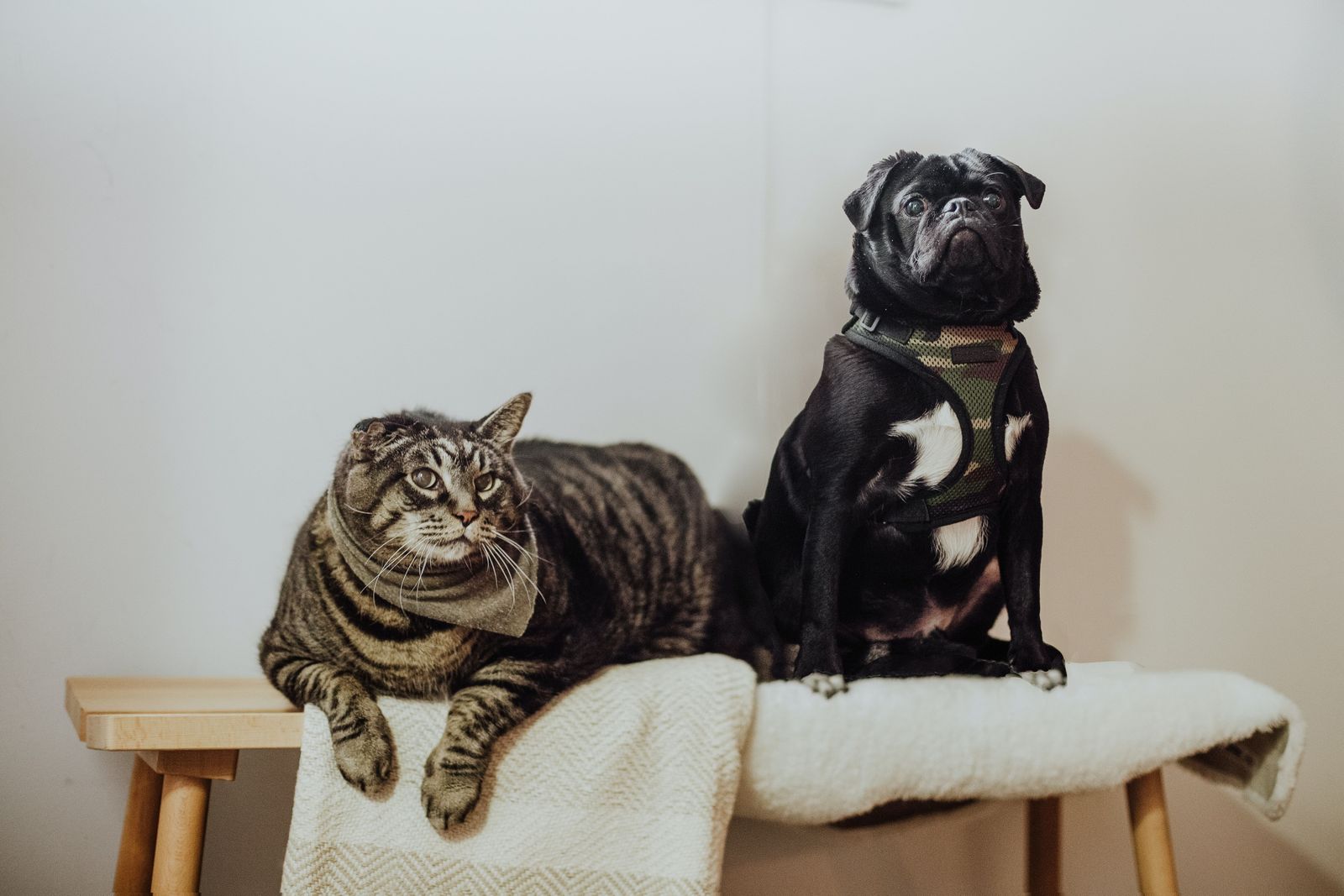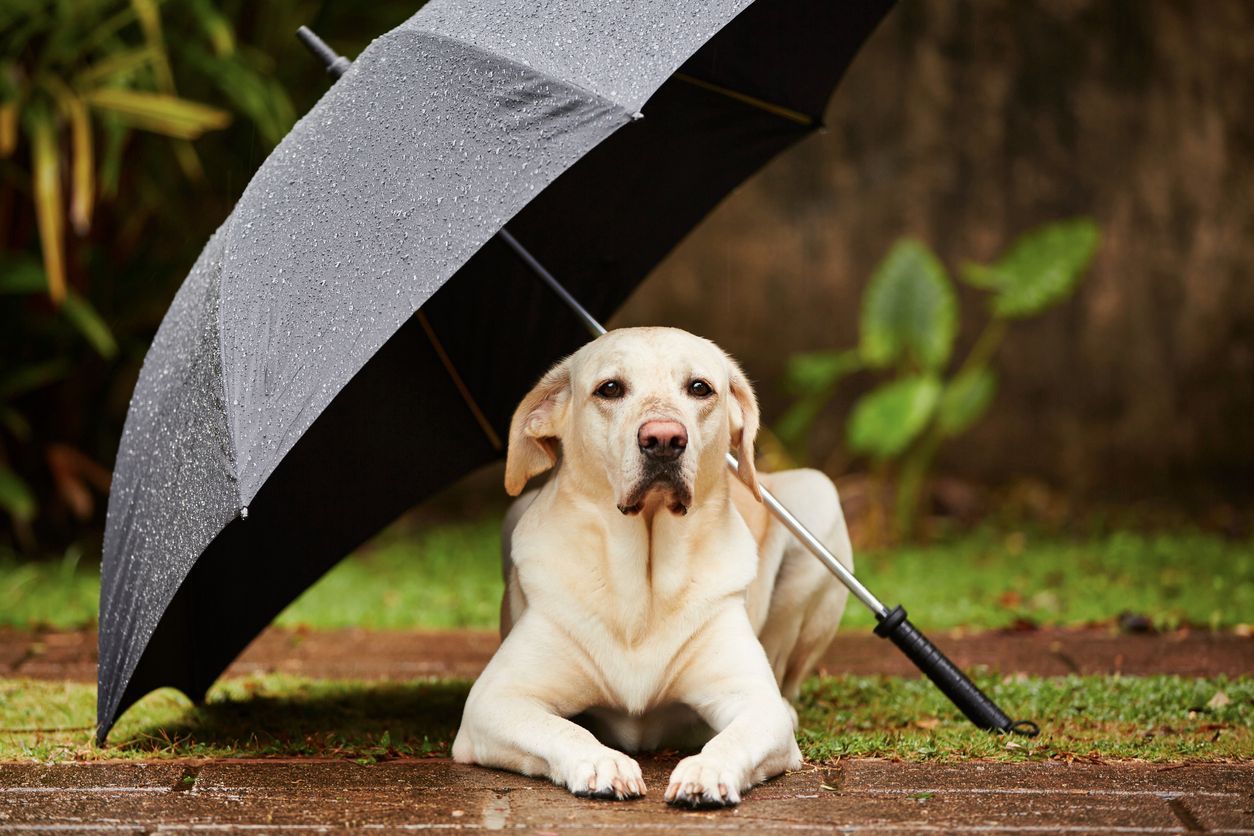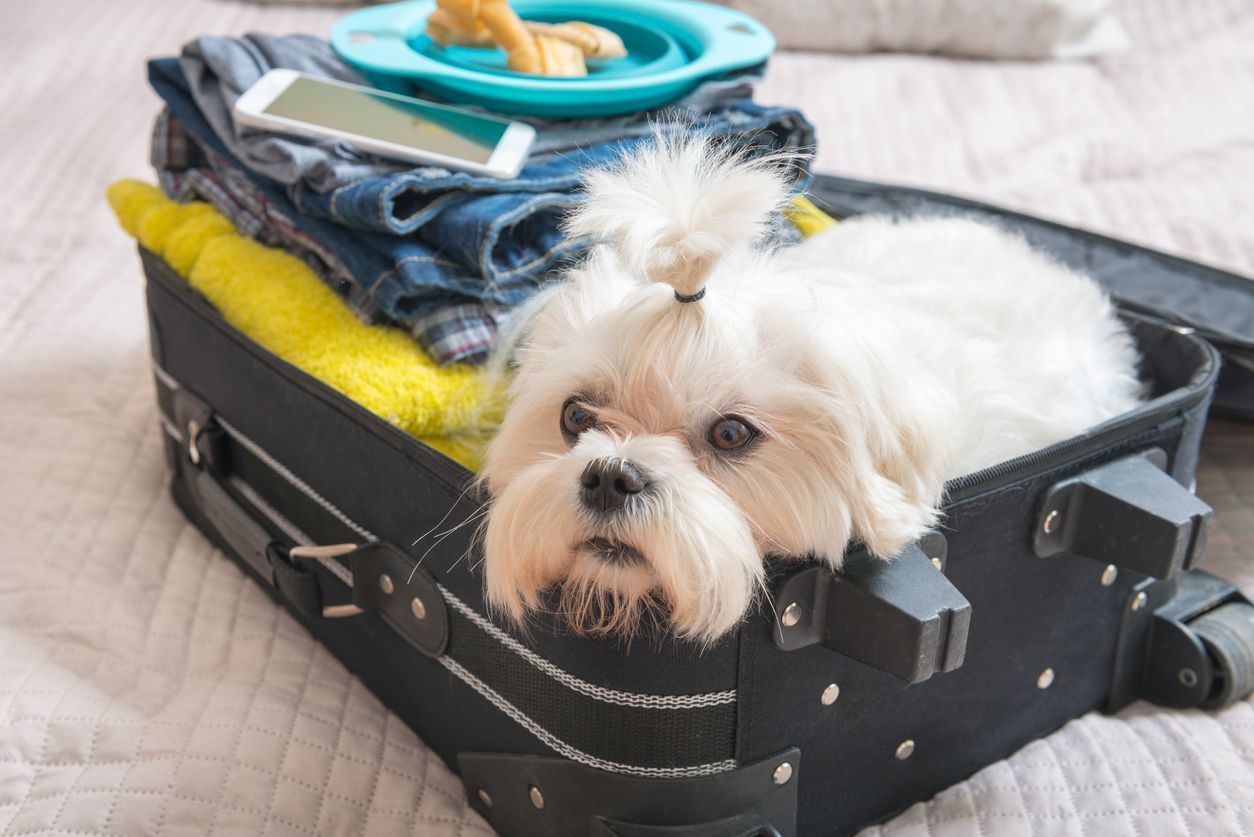From beagles to mutts: 10 best dogs for cat homes

There is likely some truth to the dog person/cat person binary. But there are plenty who love both, and want to make a loving interspecies home. If you are hoping to bring a dog into a home with a cat already in it, keep in mind that it takes some planning.
There are certain unknowns that you can’t confirm at the start, such as the dog’s temperament, or the way the two animals will interact in the home. Sometimes, it’s even worth considering: does your pet need a pet of its own? The good news is that you can make a more informed decision based on knowledge of a dog’s general breed characteristics.
Wondering which dogs get along best with cats? Below is a list of 10 dog breeds that traditionally have had an easy time adjusting to a home with cats. From gentle giants to cat-sized canines, you have many options when introducing a dog into your kitty-centric home.
1. Basset hound
You may think of basset hounds as sloppy, sniffy mops of love. And you’re right. Scent hounds tend to be good with cats and other pets due to an innate sense of interspecies cooperation. Plus, this particular breed is low-energy, making them great for skittish cats. Which is, debatably, all cats.
2. Beagle
Who doesn’t love a beagle? Beagles have been part of the cultural fabric for generations. Famous favorites include Odie, Gromit, and even Charlie Brown’s patient pal, Snoopy. Don’t be fooled by their stadium-filling howl: beagles, like basset hounds, are gentle and friendly despite their hunting dog pedigree.
3. Cavalier King Charles spaniel
The Cavalier King Charles (CKC) spaniel is bred primarily for companionship, and quite successfully. As a result, they’re one of the world’s most popular toy breeds. CKC spaniels are known for making great therapy dogs because they’re warm, affectionate, and bond quickly to humans. They can be clingy—they’re not called “Velcro dogs” for nothing—but that just speaks to their loyal temperament.
4. Collie
Do you remember the episode of “Lassie” in which the titular protagonist terrorizes a group of cats? No? Exactly. Collies are gentle and loving, which is not always a given among herding breeds. Other shepherding dogs tend to boss other animals around which, as anyone who’s ever spent time around a cat knows, isn’t conducive to cat ownership. But collies are different. They have retriever-like temperaments and are affectionate rather than bossy.
5. Golden retriever
Golden retrievers are smart, handsome, and endlessly affectionate. Originally developed in Scotland as a hunting breed, golden retrievers exude pure happiness. And it’s no act: goldens are hardwired for species-neutral love.
6. Labrador retriever
Labrador retrievers have a built-in love for water play that may confound or annoy your cat. But they’re among the most popular breeds for people looking for a cat-friendly dog, an active companion, or an intelligent, capable therapy animal.
7. Maltese
Closely related to the bichon frise—another cat-friendly breed—Malteses are easygoing little dogs. They shed less than other dog breeds and are frequent favorites at dog shows due in part to their friendly disposition. If you love a couch potato, the Maltese would always prefer to ornament your furniture than bother a cat.
8. Papillon
This breed takes its name from the french word for butterfly thanks to its signature butterfly-shaped ear hair. They are categorized as a toy spaniel sub-type with notably sharp minds and gentle nature. Like most of the more intelligent breeds, they need stimulation and respond well to challenges. Conscientious training will keep them from focusing that energy on your cat, allowing a comfortable cohabitation to develop.
9. Poodle
There are three varieties of poodle, all of them with a similar temperament: Standard, Miniature, and Toy.
Poodles are kind and loyal. They’re also among the most intelligent breeds, which means they require a good bit of attention throughout their lives. Their default temperament, however, is loving and curious. They’re not likely to endanger your cat, although they may annoy them until you train your poodle to give kitty their space.
10. Mixed breeds
Looking to adopt a mixed breed pup? Your local rescue shelter most likely identifies which dogs have shown they get along with cats, children, or other dogs. Even if you fall in love with a rescue dog that hasn’t been around cats, you may be able to bring them home on a trial basis and assess their temperament yourself.
Naturally, whether your dog and cat get along is immensely encouraged by slow introductions, proactive dog training, and individual temperaments—as well as the general cat-friendliness of the specific breed of dog you choose.
Choosing the right dog for your cat
Selecting the “right” breed of dog isn’t always a silver bullet.
All pets have individual personalities and temperaments that should be taken into account. Is your cat unusually skittish? Afraid of new interactions? Defensive? Then your concern perhaps should be more about protecting your dog from your cat than the other way around.
Also consider the ages of the animals involved. Age can mellow a pet, but illness and infirmity can also make an animal more nervous or likely to respond violently.
Introducing a new dog to a cat
Introducing a new pet to your home must be done carefully, especially when there are other animals there already.
First, introduce your new dog to the home with the cat closed in another room. Be sure to allow the dog to adjust to the house first, with the cat safely sequestered elsewhere.
Then, let the two animals interact with a closed door in between. If that goes well, then introduce the pair with the dog on a leash and an easy exit available for the cat. Keep interactions supervised until they get along. Note this process can take days, weeks, or even months and you can’t force a positive interaction.
If you’re having prolonged difficulty pairing your pets, talk to a specialist to better understand underlying issues and decode mystifying behavior. With Vetster, you can book a virtual appointment with licensed veterinary professionals any time, anywhere. Best of all, the vet you connect with will be able to see your pets in their home environment and can provide more accurate advice. Book an online appointment today and help your pets become the pals they were meant to be.









